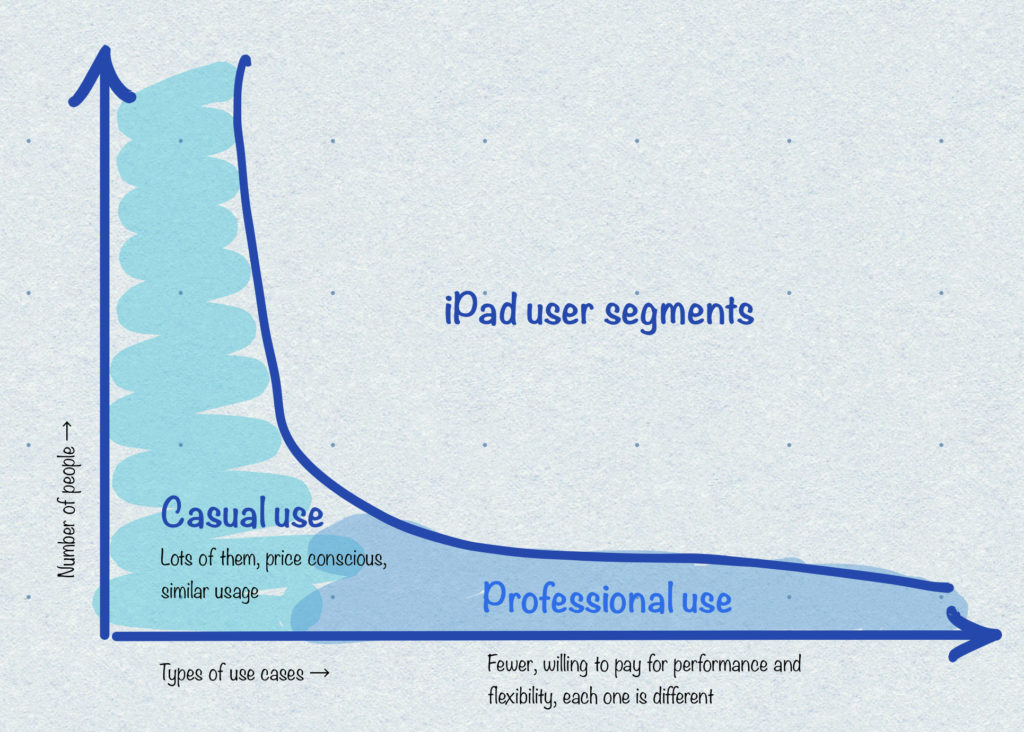A friend asked yesterday whether most people even know of the iPad Pro’s and iPadOS’ capabilities, leave alone care. So. A short thread on what I think Apple’s thinking is regarding the iPad Pro buyer segment:
The iPad Pro is specifically targeted at that narrow segment of people who already know, or educate themselves, on what the device’s capabilities are. Most others don’t care – and for them, there exists the regular iPad.
Now the regular iPad gets some of iPadOS’s software capabilities for free, such as pointer support. But in terms of raw performance and hardware, it lags. It’s unlikely to get multiple cameras, LIDAR, Smart Connector, the speaker system, even ProMotion.
But that keeps prices down, and that’s key. The causal buyer will look at price first and features second (they are already sold on the core iPad proposition). The vanilla iPad is a killer everyperson tablet at its price.
The professional, however, is going to want a device with whole range of features and capabilities because their iPad use cases form the long tail. And for that power and functionality, they are willing to pay lots more:

The question I think Apple wants you to ask yourself is Do I *rely* on my iPad for work? For one buyer segment, the first time they ask themselves that is when they will realise they have outgrown – instantly – their regular iPad.
Apple’s ‘What’s a computer’ ad campaign earlier and ‘Your next computer is not a computer’ campaign now is to get that segment to ask themselves that question:
So. The non-Pro versions are what the vast majority will buy. But because it has more gee-whiz, the Pro is what will get the most press. And that press creates a halo effect around Apple, deepening that sense of desirability.
End note: Apple has had a long history of regular and pro variants of its hardware lines. You could even say it went all the way back to the Mac (simple, closed) and the Apple II (complex, extensible). The iBook and the PowerBook. The MacBook and the MacBook Pro. Today the iMac and the iMac Pro.
The iPhone and iPhone Pro difference, though, I think is somewhat facile, merely branding. In fact the regular iPhone (and previously the iPhone XR) are arguably better for heavy everyday ‘pro’ use – not only do they have nearly everything the Pro phones have, they have longer battery life because it doesn’t have to drive the more power-hungry OLED screen. I wonder if that hurts the Pro branding for other product lines where it it more meaningful.
